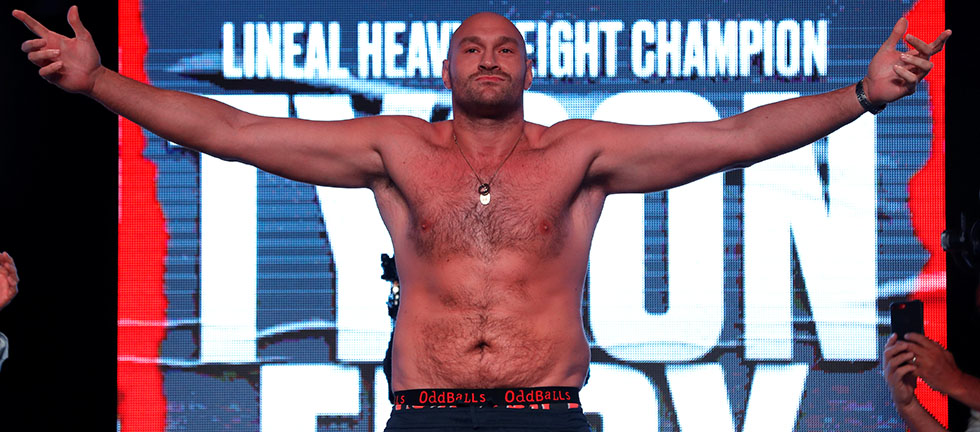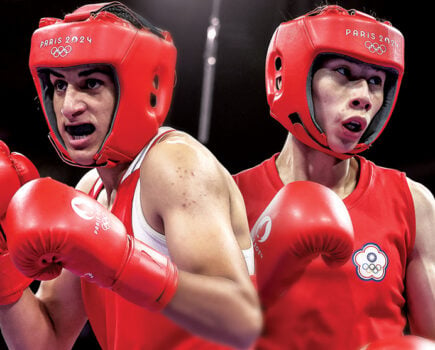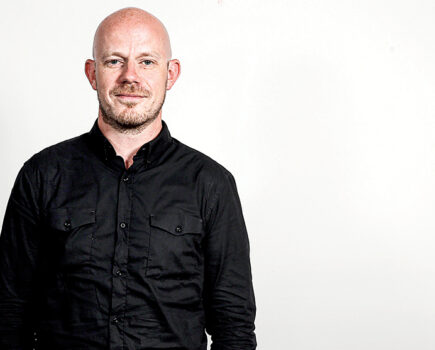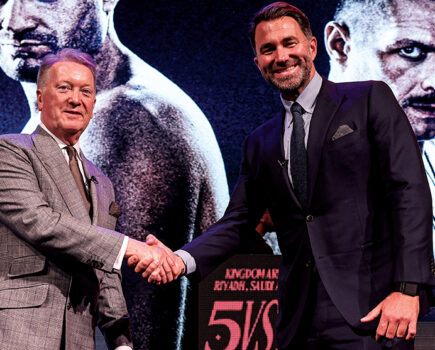THE heavyweight golden era, the one we were promised, the one we’ve all been waiting for, might have sneaked up and arrived without us even knowing it. After all, the history books are only kind once they’ve been written and maybe, when we eventually look back and put pen to paper, Tyson Fury upsetting longstanding champion Wladimir Klitschko in 2015 will be pinpointed as the moment when the good times started to roll.
Within a few weeks of that momentous changing of the guard, two young unbeaten British heavyweights engaged in a bad-tempered slugfest inside London’s O2 Arena as Anthony Joshua survived an early scare to pummel the resistance out of Dillian Whyte in seven rounds. Fury soon lost his balance at the top, and his three belts, without stepping foot in the ring. Over in America, loose-screwed WBC champion Deontay Wilder started his own tightrope dance while cannoning the likes of Eric Molina, Johann Duhaupass and Artur Szpilka into the air.
In New Zealand, Joseph Parker picked up the WBO title with a tight and contentious victory over Andy Ruiz Jnr while Joshua flattened all-comers to set up a spine-tingling showdown with Wladimir Klitschko in 2017, which added the WBA strap to Anthony’s IBF championship at Wembley Stadium. It would be the first of four consecutive stadium fights for “AJ” as he halted a game Carlos Takam in 10, outpointed Parker in a unification tussle over 12 before emerging from an early crisis to knock out Alexander Povetkin in a seriously entertaining battle.
Meanwhile, back at the end of 2016, Whyte was stamping his feet in the dirt and beginning his own charge back. He outscored Dereck Chisora in a brutal 12-rounder and would later go on to flatten Lucas Browne with a punch of the ages. Then he survived a hellacious struggle with Joseph Parker on a London show that was stolen by a breath-taking war between Chisora and Takam on the undercard. Whyte screamed for a shot at Wilder in the aftermath but the “Bronze Bomber” had busied himself with a topsy-turvy early Fight of 2018 contender with Luis Ortiz in Brooklyn.

As we grumbled and groaned that Joshua was not fighting Wilder, back came Fury, after taking a few years to dust himself off, and took on Deontay himself. What followed was a contest destined to be remembered as one of the most dramatic in heavyweight history as Fury – with a serious lack of big match practice – boxed beautifully for large sections before peeling the back of his own skull from the canvas in the final round, only for the judges to call a draw.
Whyte knocked out Chisora in yet another entertaining scrap, then turned down a title shot against Joshua because the offer was not right for him. In stepped Jarrell Miller, who scored an almost laughable hattrick of failed drug tests, leaving the doors open for Ruiz Jnr, all cuddly and fluffy and harmless to re-enter the scene. Then someone fed him after midnight, Ruiz went all Gremlin, and savaged Joshua in seven thrilling rounds.
So here we are. Joshua and Ruiz look set to go again in a beyond intriguing sequel at the end of the year while Wilder – still crazy after all these years but also still champion – plots rematches with both Ortiz and Fury over the next 12 months. Not only that, someone new is preparing to enter the scene. The all-conquering cruiserweight champion, Oleksandr Usyk, has been installed as the WBO mandatory contender (due to his vast achievements in the division below) and the winner of Ruiz-Joshua II will be ordered to face him. The last time an undisputed cruiserweight champion moved to heavyweight was in 1988 when Evander Holyfield took his first steps in the land of the giants. Within three years he was a key orchestrator of one of the greatest decades in the division’s illustrious history. For Usyk, however, that great era might already be in place.






